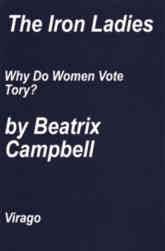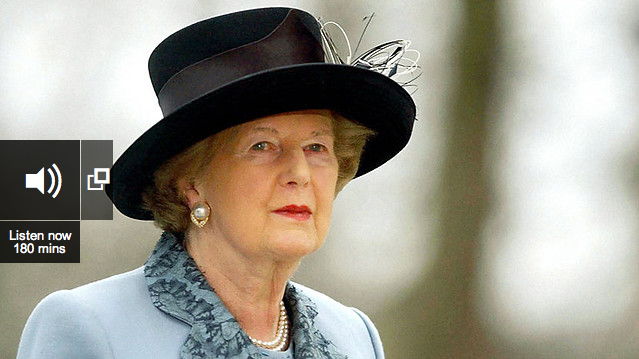* Rising and falling stars: Aimee Challenor
(First appeared on Byline, September 2018)
Somewhere in England there is a girl who was raped, tortured and electrocuted by a well-known local Green Party figure in Coventry, David Challenor. During his criminal trial his victim described his rituals in which he dressed as a little girl or a baby in a nappy, at a house used as an official Green Party address in 2015. For anyone, this case is cruel and cautionary – for Greens it is a huge political crisis.
We know that nothing is more important than community respect and validation for the survivors of sexual crime. This girl didn’t get it. Her lonely journey to the criminal court was vindicated – last month the perpetrator, David Challenor, received a 22-year-sentence.
But she was denigrated and abandoned by the people who mattered most, her intimate community, the Challenors, well-known Green Party activists. It was the abuser they supported, not his accuser.
The police interviewed members of the family in October 2015, including Aimee Challenor, who had just left the care system and began the process of transitioning to a girl. Aimee was an ambitious young trans activist who became Green Party equalities spokesperson in 2017 and a party candidate. Hailed as a ‘rising star,’ Aimee Challenor pitched into the party’s deputy leadership election.
She insists that despite the criminal charges she was ‘building bridges’ and attempting reconciliation with her father, who she twice appointed as election agent – there are no criteria regulating agents, according to the Electoral Commission. But she declined to inform the party leadership until Challenor was sentenced. Individuals knew, but didn’t act.
Coventry Pride took swift action after learning of the case in 2016. Why didn’t the Green Party or other organisations associated with Aimee Challenor, like Stonewall, follow its lead?
Members are now asking whether there was anything else Aimee Challenor didn’t disclose, they are alarmed by robust research by veteran social media monitors.
that reveals her own involvement in adult-baby fetish network
The scandal has scalded the Green leaders. An inquiry has been launched, David Challenor has been expelled. When mutiny among party members forced Aimee’s suspension in early September, Aimee Challenor quit, accused the party of transphobia and blocked Caroline Lucas on Twitter as a trans exclusionary radical feminist.
But the inquiry needs to do more than poke around the guile and cruelty of David Challenor and the Green Party needs to do more than lament its own misfortune in being gulled by the Challenors. And it needs to ask why the party’s initial official statements about the scandal pathetically paid more attention to Aimee Challenor’s need for support than the vindicated – but traduced – child.
The inquiry should ask how the party lost its marbles about gender and sexual politics and whether the party’s hard-line trans policies provided what sexual violence scholar Prof Liz Kelly calls a ‘conducive context’ that shielded the Challenors from scrutiny.
How did an open and democratic party sometimes behave like the Inquisition hunting trans heretics, particularly feminists, who have been harassed and disciplined, notably the lesbian activist Olivia Palmer, who has been expelled?
How could it come to pass that the Green Party has forced luminaries Rupert Read and Jenny Jones to publically recant their scepticism.
Aimee and David Challenor mobilised Twitter widgets to block ‘trans exclusionary radical feminists’ – last year Aimee Challenor proclaimed the campaign’s success in blocking 50,000 people deemed ‘terfs’ and bigots, and getting one vocal feminist transsexual, Miranda Yardley, being banned from Twitter for life.
When Miranda Yardley was invited to address North Surrey Green Party, they were forced to disinvite Yardley and then became the subject of a ‘transphobia’ complaint themselves. The Green Party executive didn’t protest against ‘terfblocking’. The party’s universally-respected leader Caroline Lucas hated it, but described herself as powerless to resist it. I myself complained to a senior member of the Party about terf-blocking and others did, too. Apparently no action was taken. Now Lucas herself has been terf-blocked.
The inquiry should ask who in the leadership supported Aimee Challenor’s legal action to silence Green Party activist Andy Healey – he launched Gender Critical Greens, a feminist resource, and insisted on identifying Challenor as a man. The legal action against Healey is still unresolved. Healey was not allowed to address the party conference, whilst David Challenor was given a platform to propose motions despite his impending trial on the most serious child sexual abuse charges.
Other political parties should not be smug about the Greens’ crisis and catharsis – they’ve tolerated a trans modus operandi and ideology that is bulwarked by a kind of religiosity, by claims that to debate its hypotheses is to eliminate trans people: debate is death.
The Working Class Movement Library in Manchester was aghast to find itself targeted by a trans campaign to staunch its funding.
Gay organisations, too, have been blasted by trans harassment, Manchester’s Queer Up North Festival Organiser, Jonathan Best, chronicles his grim experience. Gay people are increasingly alienated by the seemingly endless expansion of categories attached to ‘gay and lesbian,’ including trans, that have nothing to do with sexual orientation.
A closed Facebook group was promoted to name and shame academics deemed transphobic, by Goldsmiths University trans researcher Natacha Kennedy. Kennedy is also Goldsmiths’ Mark Hellen – they are one person, two personas. They appeared as ‘joint’ authors of a paper on ‘transgender children’:
Sussex University philosophy professor Kathleen Stock became a cause celebre when she was pilloried for urging philosphers to engage in the gender debates flaring in social media. She was condemned as transphobic by the students union but in July the university’s vice chancellor Adam Tickell ventured where the Green Party does not tread by affirming both trans people’s human rights and academic freedom, ‘I hold a deep rooted concern,’ he wrote, ‘about the future of our democratic society if we silence the views of people we don’t agree with.’
The Liberal-Democrats, the Tories and Labour, gay organisations and mass media commentators across the political spectrum should all start asking how they fell for trans folly that is not sustained by science, that doesn’t enjoy consensus among many trans women and trans-sexuals, and certainly not among maybe most women.
The dogma has been assiduously promoted as a new civil rights frontier and fortified by no-platforming, bullying and what can only be called blacklisting of dissenting voices deemed ‘terfs’ and ‘bigots’ on the wrong side of history. The mantra ‘There is no debate’ is recited not only in the Green Party but across the political firmament.
It is as though nothing is real, there is only ‘gender fluidity’ and freedom of choice that synchronises marvellously with neo-liberal erasure of oppression and exploitation. The notion that anyone can be anything they want to be, that a man is a woman if he says he is, empties ‘woman’ of meaning – some Greens refer to non-women to satisfy trans sensitivities.
The Challenor case is an arrow to the heart of Britain’s twisted sexual politics. Already gay activists are joining feminists and saying they are sick of the narcissism, misogyny of some trans activists:
The Green Party’s inquiry is, therefore, more important than the Green Party itself – it should open a window on the degradation of political culture.
The inquiry should also review the Green Party’s child safeguarding policy and processes. Although the party has vigorously promoted an extreme trans policy and practice, I have trawled through GP policy and can’t find a specific policy or protocol on child abuse and safeguarding, despite massive public concern in the wake of the Savile scandal in 2012, despite the work of Caroline Lucas and her Parliamentary colleagues in securing the launch of the Independent Inquiry into Child Sexual Abuse, and its public reports on institutional complicity in child abuse.
 Aimee Challenor was a teenager undergoing transition with the support of Mermaids, an organisation chided by the High Court, and criticised by some for advocating medical interventions at puberty that amount to child abuse:
Aimee Challenor was a teenager undergoing transition with the support of Mermaids, an organisation chided by the High Court, and criticised by some for advocating medical interventions at puberty that amount to child abuse:
The Challenor family had been subject to its own High Court proceedings because of the parenting the children in the family received. Whilst many children who exit the care system do so with dignity, independence, qualifications and readiness to enter the adult world, Aimee Challenor appears to have been in a family who fought against children’s services’ support and yet, by her own account, turned to the parents for support and reconciliation after leaving the care system.
The inquiry must ask: Did no one in the Green Party at the time recognise the consequential vulnerabilities which the leadership are at now at pains to stress? Did the executive consider duties of care towards a teenager going through profound personal changes, with an extreme trans ideology, being propelled into a leadership position?
Is the Green Party preparing for a possible Serious Case Review into the Challenor case, which would undoubtedly be interested in the context and culture of the child’s family and her abuser, his activity in other contexts and other institutions?
Did the leadership and executive’s support for Aimee Challenor’s trans agenda, and the party’s early, strident rush to endorse an extreme trans position, obscure child safeguarding responsibilities?
On a personal note, I should say that I am a Green Party member. I’ve stood as a candidate in local and parliamentary elections. My own journey into these debates was provoked more a decade ago by no-platforming and censorship of debate:
This forced me to address the issue itself. I have benefited from feminist writing, obviously, the eloquent essay on gender, race, class and identity politics in the Jenner and Dolezal cases in the US by political scientist Adolph Reed Jnr, and the intelligence of many transgender women and trans-sexuals. They are profoundly dismayed by the authoritarianism and speciousness of trans policy in the Green Party and the spectacular nastiness of some extreme trans advocates: Sarah Brown, a Liberal Democrats candidate in Cambridge, notoriously rebuked a fellow councillor Richard Taylor with ‘suck my formaldehyde balls’.
I support Gender Critical Greens and Woman’s Place_UK and their campaign for women’s places and safe spaces, I have chaired two of their public meetings. Trans activists have harassed the organisers and the venues, frequently obliging the organisers to change venues. In Newcastle this summer Northumbria University agreed to a last-minute booking of their out-of-town campus. A local trans activist put out an alert warning trans people that they’d not be safe in the city: watch out there’s terfs about
Many heart-sick Green Party members are now voicing their worries and urging a full review that goes beyond the Challenor debacle and reassesses policies on trans, gender and sexual politics generally, and the safeguarding of children specifically.
Some of us will give evidence to the Parliamentary committee on the Gender Recognition Act. Given the fate of others, and aside from my own decisions about whether I remain in the Green Party, we need to know whether this will this result in disciplinary action, and whether the party is prepared to forfeit seasoned and intelligent activists over bullying, misogyny and cultish trans dogma?
Members of other organisations should be asking themselves the same questions.
- Check out Jorg C’s forensic takedown of Aimee Challenor and Challenor’s husband Nathaniel Knight, a person with long-standing and acknowledged interest in fetishism and fantasies about sex with children: https://grahamlinehan.substack.com/p/something-rotten-at-the-heart-of


 Margaret Thatcher’s friends and enemies would say: she’s just like a man! She is the best man among them!
Margaret Thatcher’s friends and enemies would say: she’s just like a man! She is the best man among them!



